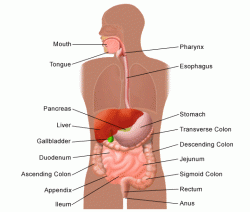Heredity and Hemorrhoids
 Similar to physical features like hair and eye color, diseases and disorders can be passed down from generation to generation. Genes, the units of hereditary material that contains coded instructions which act as a blueprint for the development of the body’s cells and systems, can also carry specific diseases that are inherited.
Similar to physical features like hair and eye color, diseases and disorders can be passed down from generation to generation. Genes, the units of hereditary material that contains coded instructions which act as a blueprint for the development of the body’s cells and systems, can also carry specific diseases that are inherited.
It has long been known that diseases such as Alzheimer’s, depression, heart disease, stroke, diabetes, osteoporosis and cancers of the breast, ovaries, colon, prostate and skin are hereditary. What may surprise most people is the fact that hemorrhoids may also be caused by heredity and hereditary factors.
Hemorrhoids result from the swelling of the veins of the anus and rectum, and can be caused by factors such as aging, constipation, diarrhea, pregnancy, obesity and diet and lifestyle habits. All of these conditions put stress and strain on the anal area, causing the veins there to become stressed.
Heredity, while not directly causing hemroids, can be a contributing factor. Weak veins can be genetic, and can make hemroids more likely to happen. Weakened veins can be more easily damaged or widened, thus resulting in hemorrhoids.
While there is nothing you can do about heredity, there are some steps you can take to prevent hemorrhoids from occurring if you know you are genetically prone to develop the condition. Keeping your bowel healthy is one of the biggest steps you can take toward the prevention of hemorrhoids, and there are a number of ways to accomplish that.
Eating a diet high in fiber is important to bowel health, as it will prevent constipation and diarrhea, two digestive disorders than can cause hemroids to develop. Fiber keeps your stools soft, and makes bowel movements occur more frequently and easily. Whole grains and fresh fruits and vegetables are all good sources of fiber, or you can take supplements to boost your intake. You may also want to avoid spicy foods as they can upset your digestive system.
Increasing your fluid intake can also contribute to good bowel health and prevent hemroids. Drinking 6 to 8 glasses of water a day will help keep your body hydrated and will prevent you from becoming constipated.
Frequent exercise also contributes to bowel health. If you have a job which requires you to sit for long periods, try to take a break every hour and walk around for at least two minutes to get your blood flowing in your lower extremities.
Another simple method that can be used to prevent hemorrhoids is to keep the anal area clean and dry at all times. Irritation in the anal area can contribute to the development of hemroids, and aggravate existing hemroids. Use either unscented toilet tissue or wet wipes to clean the area gently without abrasion or irritation.
If hemorrhoids run in your family, do not be discouraged. Heredity does not cause hemroids; it only makes you more susceptible to the condition. Instead of becoming disheartened, use the knowledge to adapt a healthier lifestyle which will not only help prevent hemroids from occurring but will improve your overall health and well-being.